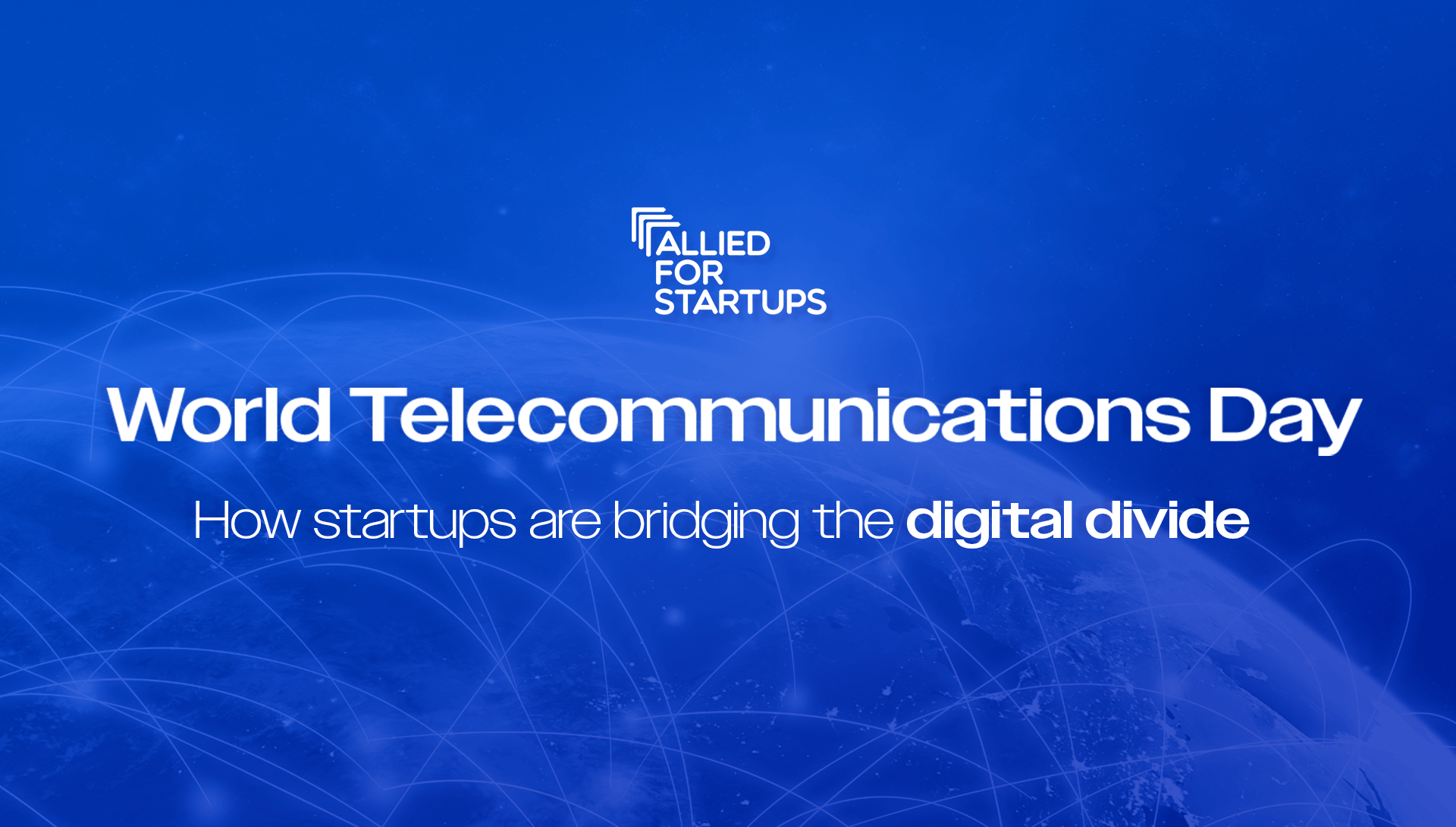World Telecommunications Day: How startups are bridging the digital divide
At this point in time, technology is at the most advanced stage, and will only continue to improve. Nevertheless, at the same moment we are confronted with the Digital Divide, with 3.7 billion people still unconnected, which hinders innovation in certain areas of the planet. This divide limits opportunities for education, economic growth, and overall quality of life for those without access.
At Allied for Startups, we believe that startups are the key to bridging the Digital Divide. By making technology more accessible, new innovative solutions have the power to address pressing global challenges including climate change, healthcare access and human rights violation. Startups can democratise access to digital tools and services, fostering inclusive growth and development. To celebrate the positive impact of digital goods, 17 May marks World Telecommunications and Information Society Day, commemorating the establishment of the International Telecommunication Union (ITU) in 1865. This year the ITU pushes everyone to explore how “digital innovation can help everyone and unlock sustainable prosperity for all”.
A significant step in this direction is the promotion of Open Source Software (OSS), playing a crucial role in ensuring that technology is accessible to everyone. The Cyber Resilience Act and the revision of the Product Liability Directive are two initiatives in the European Union (EU) aimed at enhancing the security and accountability of digital products, further enabling a safer and reliable technological environment. To adapt the shift towards a digital era, the United Nations’ Secretary-General advanced a roadmap with eight areas of action on strengthening digital cooperation across all relevant stakeholders to create a safer, more equitable digital world.
Achieving universal connectivity by 2030 is a crucial goal outlined by the roadmap. Currently, 87% of the population in developed countries is connected to the Internet, compared to only 19% of the population in developing countries, with finance being the primary barrier towards bridging the Digital Divide. In times of crisis, it has become evident that connectivity has had a positive impact, enabling governments and front-line workers to respond quickly and effectively in emergency situations. Many startups today are pacing up this goal. Take for instance Liberty Global, a UK-based organisation connecting startups together. This forum is committed to providing access to next-generation connectivity and devices to communities that are at risk of digital exclusion. Their fast-paced efforts ensure that everyone can benefit from these advancements in technology.
Promoting digital public goods to create a more equitable world is also essential. The use of digital public goods, particularly through open source software, is key to unlocking the full potential of digital technologies. Many can also benefit significantly by supporting global cooperation on artificial intelligence, while still maintaining security and ethical considerations. Many startup-owned digital public good platforms serve as support in guiding both the public and private sector, while still respecting confidentiality and privacy. Ada Health, among many other startups, is simultaneously developing common standards of open source, ensuring inclusion in the healthcare sector. By using medical AI, millions now have access to services that improve patient outcomes and empower individuals to navigate their own health journey.
Despite these advancements, obstacles still remain. The costs associated with implementing new technologies, compliance, and regulatory requirements can pose significant barriers for many startups. Many technologies today are also not easily accessible due to copyright regimes and proprietary systems. To overcome these challenges, continued global cooperation and supportive policies are vital.
Looking to the future, fostering innovation, promoting open standards, and ensuring equitable access to digital technologies, can create a more inclusive world. The journey to bridging the Digital Divide is a collective effort, requiring the collaboration of startups, policymakers, international organisations, and communities worldwide.

